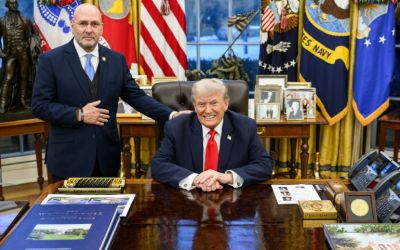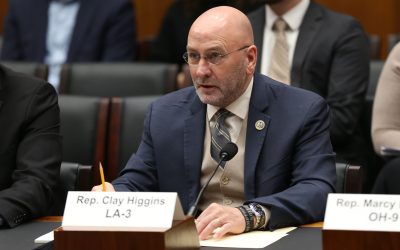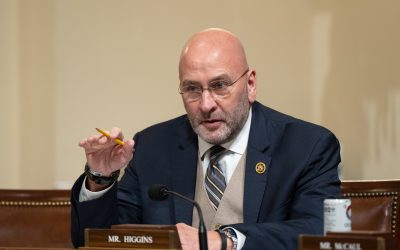Lawmakers are calling for measures to combat foreign countries’ alleged theft of American universities’ research and scientific discoveries.
More careful screenings of incoming foreign students could help prevent spies from accessing U.S. academic research facilities, House Science, Space and Technology Committee Chairman Rep. Lamar Smith (R-Texas) and Vice Chairman of the House Science Subcommittee on Oversight Clay Higgins (R-La.) said in a hearing April 11.
Higgins also pitched a proposal to require universities accepting federal research funds to have cyber and security policies in place to guard against foreign commercial espionage. Rep. Suzanne Bonamici (D-Ore.) called for reactivating an FBI-created national board—the National Security Higher Education Advisory Board—that shares information between academic institutions and the FBI.
Sensitive national security and economic research is at risk as countries like China, Russia and Iran increasingly undertake activities to steal innovations, witnesses told the joint subcommittee hearing. The countries’ covert activities range from hacking computer systems to funding struggling research projects to posing as professors or students with access to labs, they said.
“For a foreign espionage service, academia is a great place to operate,” Michelle Van Cleave, the U.S. National Counterintelligence Executive under President George W. Bush, said at the hearing.
The FBI has for decades tracked foreign spies in U.S. universities. But recent high profile spying cases and the Trump administration’s new focus on foreign intellectual property theft, especially by China, have spotlighted the issue.
In March, the U.S. Department of Justice indicted nine Iranian individuals for allegedly hacking into the accounts of professors across 144 U.S. universities and stealing more than $3.4 billion in intellectual property and research data.
“The recent indictments of Iranian student-spies and other incidents are clear warnings about the need for swift, strong action,” Smith said at the hearing. “This includes improved cybersecurity, educating researchers to anticipate attempts to steal their work and more careful screening of those who come to the United States to study.”
Smith did not give further details into his proposal to vet foreign students.
In December, the Trump administration floated a similar plan in its annual National Security Strategy report when it said it would consider restrictions on foreign students studying science, technology, engineering and mathematics in order to protect intellectual property theft by competing countries.
Higgins said changing universities’ federal research grant application process could ensure that they have in-house cyber and security training.
“I suggest that grant applications should include some verification of the levels of training and awareness that we have certainly highlighted today,” Higgins said at the hearing.
The U.S. government spent over $27.4 billion on academic research and development in 2014, according to witness Daniel Goldman, author of “Spy Schools.”
More than 1 million international students studied in the U.S. last year, with about a third coming from China, data from the U.S. State Department show.
Still, witnesses noted that the vast majority of foreign students and professors are in the U.S. for legitimate reasons, as supported in a 2011 FBI report on foreign academic espionage. Lawmakers said any efforts to root out commercial spies should not discriminate or block incoming students with legitimate intent.
“To be clear, the solution is not to shutter the doors of American universities and colleges to students, researchers and professors from foreign nations,” Barbara Comstock (R-Va.), chairman of the House Science, Space and Technology Committee’s Subcommittee on Research and Technology, said at the hearing.



